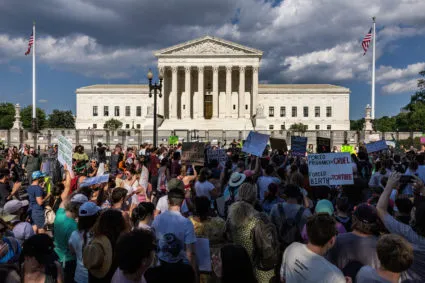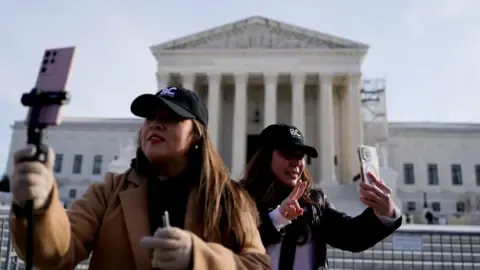The U.S. Supreme Court is reviewing new age verification laws that could change how people access online pornography. These laws aim to prevent minors from viewing adult content but have sparked intense debates over free speech, privacy, and digital rights. The outcome of this case could impact millions of users and reshape the internet’s future.
Why Is This Happening?
The discussion about age verification laws for online pornography has been gaining momentum in recent years. Lawmakers argue that easy access to explicit content negatively affects children’s mental and emotional health. Several states have already passed strict age verification laws, requiring users to provide government-issued identification before accessing adult websites. However, these laws have faced legal challenges, leading to the Supreme Court’s review.

Key Concerns Surrounding Age Verification Laws
1. Protecting Minors from Harm
- Lawmakers believe that restricting access to adult content will protect children from harmful material.
- Studies suggest that exposure to explicit content at a young age can lead to unrealistic expectations, addiction, and mental health issues.
- Many child advocacy groups support stricter regulations to keep adult content away from minors.
2. Privacy and Data Security Risks
- Opponents argue that age verification laws force users to submit sensitive personal information, such as government IDs or credit card details.
- Cybersecurity experts warn that requiring ID verification could increase the risk of identity theft and data breaches.
- Users may be hesitant to access legal adult content due to fears of being tracked or exposed.
3. Freedom of Speech and Censorship Issues
- Adult entertainment companies claim that these laws violate First Amendment rights.
- Legal experts argue that age verification could be used to justify further online censorship.
- There is concern that these laws might set a precedent for restricting other types of legal content in the future.
Current Laws and Legal Battles
State-Level Restrictions
- Several states, including Louisiana, Utah, and Texas, have implemented age verification laws for pornographic websites.
- Websites that fail to comply may face fines or even be blocked in those states.
- These state laws have led to lawsuits from adult content platforms challenging their constitutionality.

Legal Challenges and Industry Pushback
- Major adult websites have fought back against these laws, arguing that they are unconstitutional and harm business operations.
- The adult entertainment industry has proposed alternative solutions, such as improved parental controls instead of mandatory ID verification.
- Some websites have blocked access in certain states rather than comply with age verification requirements.
How the Supreme Court’s Decision Could Change Everything
If the Court Upholds Age Verification Laws:
- More states may introduce similar restrictions.
- Adult websites might be required to implement stricter identity checks nationwide.
- Users may experience inconvenience and privacy concerns when accessing legal adult content.
If the Court Strikes Down the Laws:
- Current state laws enforcing age verification could be overturned.
- Digital privacy advocates would see it as a victory for internet freedom.
- Lawmakers might need to find new ways to protect minors from explicit content.
Global Perspective: How Other Countries Handle This Issue
United Kingdom’s Approach
- The UK previously attempted to introduce an age verification system but abandoned it due to privacy and enforcement concerns.
- Instead, they now focus on parental controls and educating children about online safety.

France and Germany
- France and Germany have stricter regulations, requiring adult websites to verify users’ ages through various methods.
- These measures have faced legal opposition and mixed reactions from the public.
Public Opinion and Reactions
- Parents and child advocacy groups support age verification laws as a necessary step to protect minors.
- Privacy advocates and digital rights organizations argue that these laws invade personal privacy.
- Many users worry that ID verification could lead to government tracking or leaks of sensitive information.
Conclusion: What’s Next?
The Supreme Court’s ruling will have lasting effects on online freedom, privacy, and child safety. Whether the court upholds or rejects age verification laws, this decision will shape internet regulations for years to come. People on both sides of the debate are waiting anxiously for the outcome, which could change how adult content is accessed and regulated in the United States.
Do Follow USA Glory For More Updates.






